| P. T. BhaskaraPanicker Memorial Lecture by Dr. B. Ashok IAS at Government College for Women, Thiruvananthapuram on 30 January 2025 |
|
|
| Dr. Thanu Padmanabhan Memorial Lecture by Dr. Annapurni Subramaniam at Cochin University of Science and Technology, Ernakulam on 28 January 2025 |
|
Dr. A |
| Dr. P.K. Iyengar Memorial Lecture by Dr. S. Unnikrishnan Nair at M.G University, Kottayam on 24 January 2025 |
|
|
| P.K. Gopalakrishnan Memorial Lecture by Prof. P. Ramakumar at Government College, Chittur, Palakkad on 10 January 2025 |
|
|
| G.N. Ramachandran Memorial Lecture by Prof. P. Balaram at Cherusseri Auditorium, Thavakkara Campus, Kannur University, Kannur, 16 December 2024, 2.00 PM |
|
|
P.R. Pisharoty Memorial Lecture by Dr. Thamban Meloth at EMS Seminar Complex, University of Calicut, Malappuram on 12 December 2024 at 11.00 AM
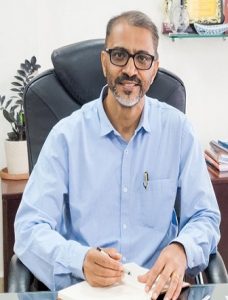 Dr. Thamban Meloth FNASc, FASc is the Director of the National Centre for Polar and Ocean Research, Goa. He has been with the National Centre for Polar and Ocean Research since 2002, focusing on climate variability’s impact on polar glaciers. He has led multiple scientific expeditions to Antarctica, the Arctic, the Himalayas, and the Southern Ocean and was port of India’s first South Pole expedition in 2010. Recognized widely, he has received awards such as the National Geoscience Award (2013) and DAAD Fellowship (1997). A member of various scientific bodies, he contributes to global research committees like WMO, PHORS and IASC. Dr. Meloth has supervised numerous PhD students and published over 125 peer-reviewed studies.
Dr. Thamban Meloth FNASc, FASc is the Director of the National Centre for Polar and Ocean Research, Goa. He has been with the National Centre for Polar and Ocean Research since 2002, focusing on climate variability’s impact on polar glaciers. He has led multiple scientific expeditions to Antarctica, the Arctic, the Himalayas, and the Southern Ocean and was port of India’s first South Pole expedition in 2010. Recognized widely, he has received awards such as the National Geoscience Award (2013) and DAAD Fellowship (1997). A member of various scientific bodies, he contributes to global research committees like WMO, PHORS and IASC. Dr. Meloth has supervised numerous PhD students and published over 125 peer-reviewed studies.
E.K. Janaki Ammal Memorial Lecture by Dr. Jauhar Ali at EMS Hall, Kariavattom Campus, University of Kerala, Thiruvananthapuram on 06 December 2024 at 2.30 PM
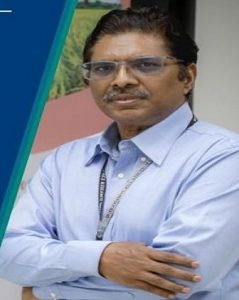 Dr. Jauhar Ali as the Head of the Hybrid Rice Development Consortium and a Principal Scientist at the International Rice Research Institute (IRRI), Dr Ali has 30 years of research experience in developing and deploying superior rice varieties and hybrids for Asia and Africa. He did his Ph.D. in Genetics and has a strong background in crop breeding, molecular biology, and genomics.
Dr. Jauhar Ali as the Head of the Hybrid Rice Development Consortium and a Principal Scientist at the International Rice Research Institute (IRRI), Dr Ali has 30 years of research experience in developing and deploying superior rice varieties and hybrids for Asia and Africa. He did his Ph.D. in Genetics and has a strong background in crop breeding, molecular biology, and genomics.
Dr. Jauhar Ali leads the hybrid rice breeding program at IRRI, which aims to create climate-smart rice hybrids (CSRH) that are high-yielding, stress-tolerant, and nutrient-use efficient. He is also the head of the Hybrid Rice Development Consortium (HRDC), a platform that connects and supports more than 95 public and private seed companies to promote the widescale adoption of hybrid rice technology (HRT). Under his leadership, the HRDC has increased its paid membership by 56% since 2016 and has become a fully self-sustaining business model. He is the Vice-Chairman of the First Directorate of the International Forum on Rice Development, a vision initiated by the late Prof Yuan Longping, the father of hybrid rice. One of his recent and notable achievements is the development and commercialization of arsenic-safe rice varieties, which won the Global Food Systems Grand Challenge Prize 2021. This project will provide safer and healthier rice for millions of people in arsenic-polluted regions. He is passionate about using genomic resources and tools to breed rice varieties and hybrids that can address the challenges of food security, climate change, and human health. He has guided 18 Masters and 20 Ph.D. students and trained more than 3000 researchers. Dr. Ali’s mission is to empower the next generation of rice scientists and farmers to improve their livelihoods and contribute to global food systems.
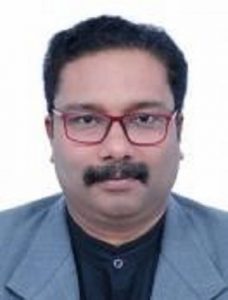 An eminent educationist, writer, speaker, academician, and columnist, currently serving as the Agricultural Production Commissioner and Vice Chancellor of the Kerala Agricultural University. Dr B Ashok was the first Vice-Chancellor of the Kerala Veterinary & Animal Sciences University. He was a Professor and Registrar at Chinmaya Vishwavidyapeeth University in Kochi. A 1998 batch IAS officer, he served as Director, Central Department of Agriculture; Deputy Director – National Academy of Administration, Mussoorie, and Faculty of Mussoorie IAS Academy for over 15 years. He held the posts of Power Secretary, KSEB Chairman and Managing Director, and Water Resources Director. During his tenure as Chairman and Managing Director of the Electricity Board, he initiated many reforms.
An eminent educationist, writer, speaker, academician, and columnist, currently serving as the Agricultural Production Commissioner and Vice Chancellor of the Kerala Agricultural University. Dr B Ashok was the first Vice-Chancellor of the Kerala Veterinary & Animal Sciences University. He was a Professor and Registrar at Chinmaya Vishwavidyapeeth University in Kochi. A 1998 batch IAS officer, he served as Director, Central Department of Agriculture; Deputy Director – National Academy of Administration, Mussoorie, and Faculty of Mussoorie IAS Academy for over 15 years. He held the posts of Power Secretary, KSEB Chairman and Managing Director, and Water Resources Director. During his tenure as Chairman and Managing Director of the Electricity Board, he initiated many reforms.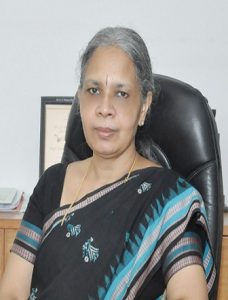 nnapurni Subramaniam, an eminent Indian astrophysicist, is the Director of the Indian Institute of Astrophysics (IIA), Bangalore. She pursued her undergraduate studies at Government Victoria College, Palakkad, and completed her Ph.D. in Astrophysics from the Indian Institute of Astrophysics (1996), focusing on “Studies of star clusters and stellar evolution.” Her illustrious research career spans topics such as star clusters, stellar evolution, star formation, Galactic structure, and stellar populations in the Magellanic Clouds. She is currently involved in projects studying emission-line stars, star formation history, and stellar populations in galaxies, among others. Dr. Subramaniam has received several accolades, including the Vigyan Shri Award under the Rashtriya Vigyan Puraskar scheme (2024), and is an active member of the International Astronomical Union. With over two decades of contributions to astrophysics, her work continues to shed light on the mysteries of the universe.
nnapurni Subramaniam, an eminent Indian astrophysicist, is the Director of the Indian Institute of Astrophysics (IIA), Bangalore. She pursued her undergraduate studies at Government Victoria College, Palakkad, and completed her Ph.D. in Astrophysics from the Indian Institute of Astrophysics (1996), focusing on “Studies of star clusters and stellar evolution.” Her illustrious research career spans topics such as star clusters, stellar evolution, star formation, Galactic structure, and stellar populations in the Magellanic Clouds. She is currently involved in projects studying emission-line stars, star formation history, and stellar populations in galaxies, among others. Dr. Subramaniam has received several accolades, including the Vigyan Shri Award under the Rashtriya Vigyan Puraskar scheme (2024), and is an active member of the International Astronomical Union. With over two decades of contributions to astrophysics, her work continues to shed light on the mysteries of the universe.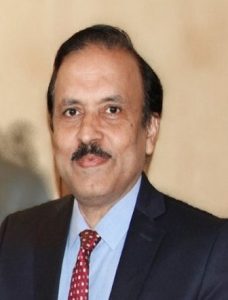 Dr. S. Unnikrishnan Nair, Distinguished Scientist, serves as Director of VSSC and IIST. A founding leader of ISRO’s Human Space Flight Centre, he spearheaded India’s Gaganyaan mission and key projects like SRE, CARE, and Pad Abort Test. With a BTech from Kerala University, ME from IISc, and PhD from IIT Madras, he has significantly contributed to aerospace systems for PSLV, GSLV, and LVM3. Dr. Nair holds several awards, including ISRO Excellence and Atmanirbharata Awards. An accomplished author, patent holder, and nature enthusiast, he has also contributed to finite element analysis and published short stories in leading Malayalam magazines.
Dr. S. Unnikrishnan Nair, Distinguished Scientist, serves as Director of VSSC and IIST. A founding leader of ISRO’s Human Space Flight Centre, he spearheaded India’s Gaganyaan mission and key projects like SRE, CARE, and Pad Abort Test. With a BTech from Kerala University, ME from IISc, and PhD from IIT Madras, he has significantly contributed to aerospace systems for PSLV, GSLV, and LVM3. Dr. Nair holds several awards, including ISRO Excellence and Atmanirbharata Awards. An accomplished author, patent holder, and nature enthusiast, he has also contributed to finite element analysis and published short stories in leading Malayalam magazines.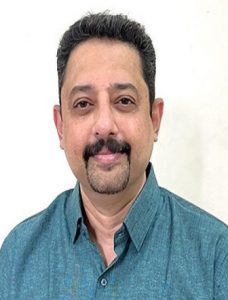 Prof. R. Ramakumar is an economist and a Professor at the School of Development Studies, Tata Institute of Social Sciences (TISS), Mumbai. Trained as an undergraduate and postgraduate in agricultural science, Ramkumar received his PhD in Quantitative Economics from the Indian Statistical Institute, Kolkata. He also serves as an expert member in the Kerala State Planning Board. Previously, he was the NABARD Chair Professor at TISS as well as the Dean of the School of Development Studies. He held visiting appointments at the London School of Economics and Political Science, University of Zurich, Queen Mary University of London, and Goa University. He is also a member of the Research Programmes Committee, Indian Society of Agricultural Economics, and in the editorial board of the Journal Review of Agrarian Studies. His work has largely been on Indian economy, agrarian studies, and agricultural economics, with special focus on rural banking and agricultural research.
Prof. R. Ramakumar is an economist and a Professor at the School of Development Studies, Tata Institute of Social Sciences (TISS), Mumbai. Trained as an undergraduate and postgraduate in agricultural science, Ramkumar received his PhD in Quantitative Economics from the Indian Statistical Institute, Kolkata. He also serves as an expert member in the Kerala State Planning Board. Previously, he was the NABARD Chair Professor at TISS as well as the Dean of the School of Development Studies. He held visiting appointments at the London School of Economics and Political Science, University of Zurich, Queen Mary University of London, and Goa University. He is also a member of the Research Programmes Committee, Indian Society of Agricultural Economics, and in the editorial board of the Journal Review of Agrarian Studies. His work has largely been on Indian economy, agrarian studies, and agricultural economics, with special focus on rural banking and agricultural research.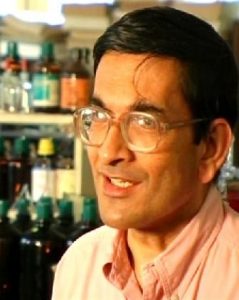 Prof. P. Balaram FNA, FASc, FNASc is a distinguished Indian biochemist and former Director of the Indian Institute of Science, Bangalore. He is the recipient of several prestigious awards, including the Padma Bhushan, India’s third-highest civilian honor (2014), the TWAS Prize (1994), and the R. Bruce Merrifield Award from the American Peptide Society (2021). Prof. Balaram completed his PhD at Carnegie Mellon University and pursued postdoctoral research at Harvard University under Nobel laureate R. B. Woodward. He then joined the Indian Institute of Science as a faculty member in the Molecular Biophysics Unit and currently serves as a Visiting Professor at the National Center for Biological Sciences in Bangalore. His primary research focus is the structural and conformational analysis of designed and natural peptides. Utilizing Nuclear Magnetic Resonance (NMR) spectroscopy, Infrared spectroscopy, Circular Dichroism, and X-ray crystallography, Prof. Balaram has made significant contributions to understanding peptide folding and the formation of structural motifs such as helices, beta turns, and sheets. He has published over 400 research papers and trained several students. He was the former editor of the journal “Current Science”.
Prof. P. Balaram FNA, FASc, FNASc is a distinguished Indian biochemist and former Director of the Indian Institute of Science, Bangalore. He is the recipient of several prestigious awards, including the Padma Bhushan, India’s third-highest civilian honor (2014), the TWAS Prize (1994), and the R. Bruce Merrifield Award from the American Peptide Society (2021). Prof. Balaram completed his PhD at Carnegie Mellon University and pursued postdoctoral research at Harvard University under Nobel laureate R. B. Woodward. He then joined the Indian Institute of Science as a faculty member in the Molecular Biophysics Unit and currently serves as a Visiting Professor at the National Center for Biological Sciences in Bangalore. His primary research focus is the structural and conformational analysis of designed and natural peptides. Utilizing Nuclear Magnetic Resonance (NMR) spectroscopy, Infrared spectroscopy, Circular Dichroism, and X-ray crystallography, Prof. Balaram has made significant contributions to understanding peptide folding and the formation of structural motifs such as helices, beta turns, and sheets. He has published over 400 research papers and trained several students. He was the former editor of the journal “Current Science”.